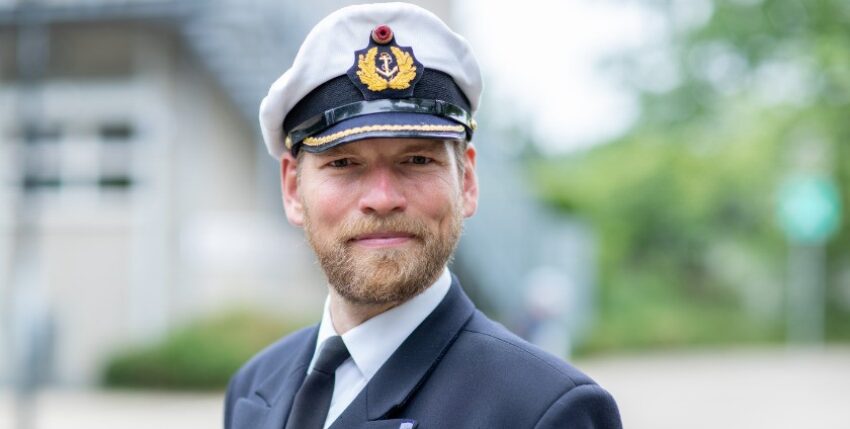The first port of call for advice on all maritime issues, a bridge between science, practice and politics with a comprehensive view of the sea and the world: who else in Germany fulfils this role if not the navy? Germany has become increasingly maritime over the past 30 years - with its economy, but also in its foreign policy. The navy has played an important role in this.
But where do Germany and its navy stand today? Geopolitical and pandemic-related shocks to global supply chains are reinforcing tendencies towards renationalisation and protectionism, and the strategic tunnel vision of Russia threatens to obscure our view of the world. While the Russian Navy flanks its own foreign policy with port visits, joint manoeuvres and presence as far afield as South Africa, the German Navy is primarily focused on threat scenarios in the North Sea, Baltic Sea and North Atlantic. At the same time, Germany and Europe are currently more dependent on the sea and global maritime security than ever before - and not just in terms of essential energy imports.
If the navy is mainly operating in the North and Baltic Seas and is primarily concerned with Russia as a military opponent, how can it credibly provide comprehensive advice to German politics and society on developments, opportunities and risks at sea and in the world? A presence in the Indian Ocean or a station ship in Southeast Asia would establish Germany as a visible partner in relevant regions. This would also provide the navy with far more than just valuable territorial expertise and knowledge of the procedures of navies in important partner countries. It did not take long for naval personnel with cultural and language skills to supplement Germany's strategic view with their own perspective in an advisory capacity.
The navy has the most important basis for its advisory and active role: The deeply rooted leadership and discussion culture of "Innere Führung", the citizen in uniform, which characterises it and the Bundeswehr as a whole. Yes, the navy has too few ships for all its tasks, and it lacks the people - and those that are there have to see how they can get spare parts and ammunition for the ships they have. Nevertheless, Germany has a uniquely valuable instrument of foreign policy in its navy - with all the potential to become a "maritime champion", far beyond the narrow perspective of regionally limited national and alliance defence.
The open culture of discussion at the Historical Tactical Conference, where young officers also take a hard look at the leadership of their navy, must not be limited to one room only once a year. In over 20 years in the navy, I have experienced in everyday life what we preach at the start of the year. Critics are involved in concrete cooperation and the navy draws on talent from a wide variety of areas. The Marine umbrella document working group, which is currently meeting from February to May, is a wonderful example of this. It is a privilege to work on fundamental issues alongside civilian and military experts from different backgrounds and across ranks: What does Germany have a navy for? And what can and must the navy offer the Federal Republic of Germany as an instrument of policy?
However, openness and freedom in the expression of critical opinions must also be utilised. The marineforum is read and takes great pleasure in printing articles from the field - where it can be seen whether what is decided at strategic heights works. The comments function in the online edition and the letters to the editor page in the printed magazine are also available to everyone. Ultimately, the navy's indispensable contribution to Germany's ability to act and the broader overall strategic discussion depends on what its servicewomen and men personally contribute. So take courage! This is not a navy that resents critical thinking - on the contrary!
Kapitänleutnant Dr Moritz Brake is a Senior Fellow at the Center for Advanced Security, Strategic and Integration Studies (CASSIS) at the University of Bonn and a member of the German Maritime Institute (DMI).
Moritz Brake







